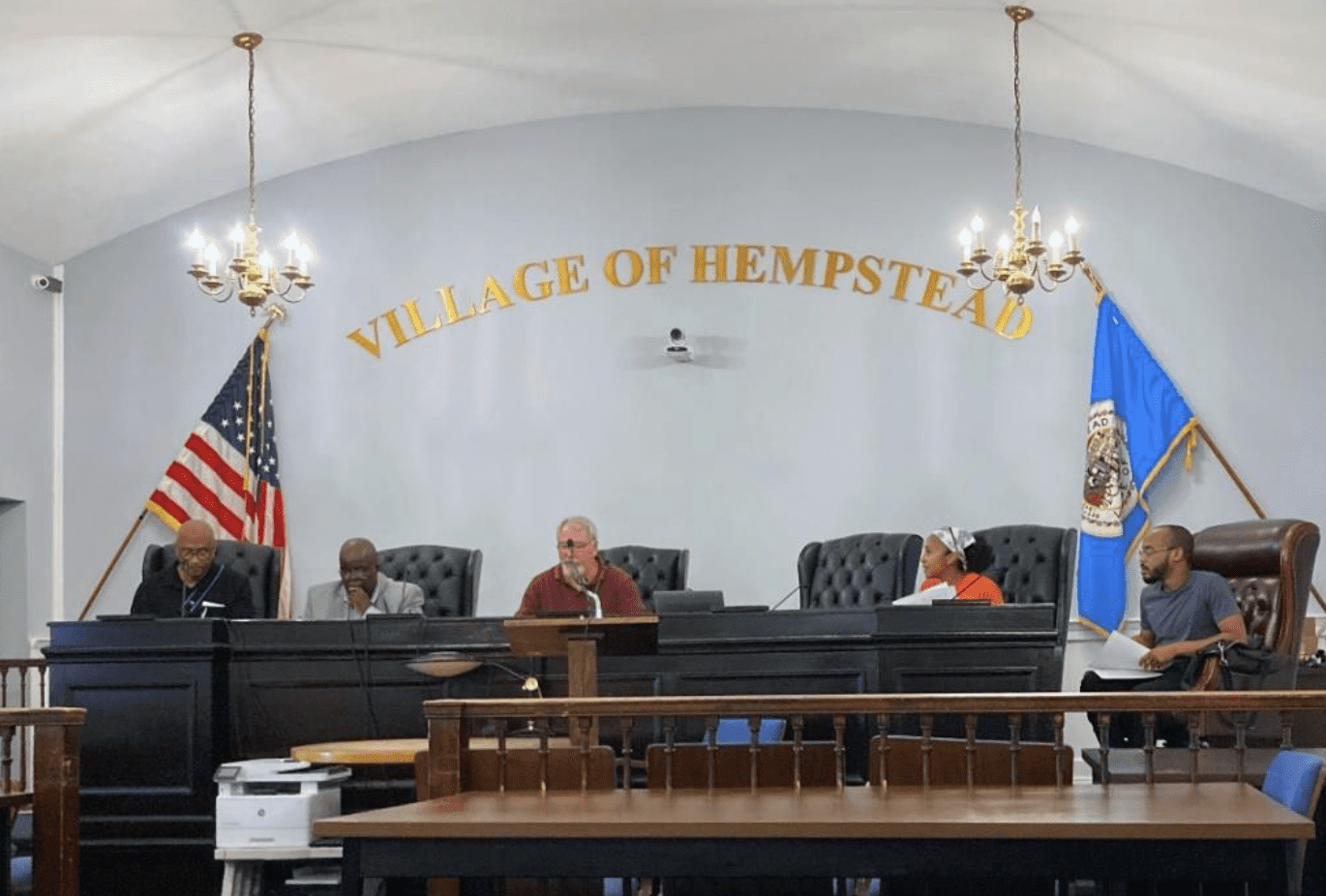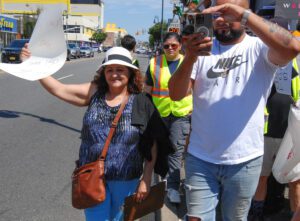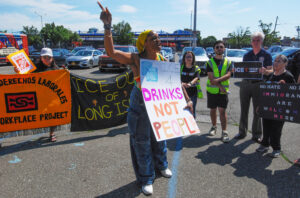By Melinda Rolls
Hempstead Village officials are continuing to push for city status one year after the Hempstead Village Board of Trustees appointed a 10-person City Charter Commission Advisory Board to explore the possibility of incorporating Hempstead Village into a city. For the past year, the committee has been studying the pros and cons of cityhood and drafting a proposed city charter to submit for state approval.
A new city has not been incorporated in New York State since the City of Rye in 1942, despite dozens of attempts by New York communities to earn city status in the following decades, according to the SUNY Rockefeller Institute of Government.
On Sept. 14, Hempstead’s City Charter Commission held its most recent monthly meeting at the Hempstead Village City Hall. Committee members met to fine-tune the duties of government positions within the charter, including the roles of mayor, city clerk and city court judge.
This is not the first time Hempstead Village has attempted to attain city status. A proposed charter for a city of Hempstead was introduced by then State Sen. Kemp Hannon to the State Legislature in 2001, 2002 and 2003, according to the Rockefeller Institute.
Although the 2003 bill made it to a third reading, the final step before a floor vote by the entire Senate, the bill was ultimately unsuccessful. The City Charter Commission has access to only a hard copy of the original proposed city charter in 2001, but a page remains missing, leaving committee members to create some of the new charter from scratch.
“In some respects, it gives us a blank slate,” said City Charter Commission member Bill Miller. “In an effort to move forward, we decided to look at charters from other cities and start to extract information from those charters to see what might evolve into Hempstead.”
Becoming a city could bring millions in additional state funding to Hempstead Village. In New York State, cities receive significantly more state aid than towns and village governments. State funding formulas often favor cities based on the belief that cities require more aid due to the demands of urban environments, with higher population densities resulting from higher poverty rates. In Hempstead Village, population density has not slowed.
“If you’re looking at the downtown revitalization in these apartments going up, you’re adding a lot more people to the mix coming through the village one time or another,” said City Charter Commission and Board of Trustees member Kevin Boone. “You’re adding a lot more people to the environment. With more people come more problems.”
State funding formulas that provide the bulk of revenue to cities do not account for larger villages that face similar challenges of more urban environments. As the largest village in New York, Hempstead has a bigger population and population density than many New York cities. Still, the village receives only a fraction of state funding compared with cities.
“So, while we’re getting around $2 million [in state and federal funding], Glen Cove and Long Beach are getting around $7 million and $9 million,” said City Charter Commission member Raymond Gomes during the meeting. “Those are the things that we need to look for. We have to examine the numbers.”
With cityhood, Hempstead Village could benefit from the Aid and Incentives for Municipalities program, or AIM. AIM is the largest sum of money that New York hands out to municipal governments, at at total of $714 million. The program provides aid to New York towns, villages and cities (other than New York City).
“While we’re getting around $2 million [in state and federal funding], Glen Cove and Long Beach are getting around $7 million and $9 million. Those are the things that we need to look for. We have to examine the numbers.”
Raymond Gomes, City Charter Commission Member
However, the money is not split evenly, or on a per capita basis. Instead, the top 12 recipients are all cities, with Buffalo receiving the largest grant at $161 million. According to a 2022 report by the Office of the New York State Comptroller, cities outside New York received almost 99% of AIM funding in 2022, up from 91% in 2019.
Despite Hempstead Village having a higher population density than the only two Long Island cities of Glen Cove and Long Beach, the AIM program does not provide Hempstead Village with close to similar funding. Under AIM, the Village of Hempstead receives $2.8 million less than the City of Glen Cove and $3.3 million less than the City of Long Beach.


Reincorporation into a city could also allow Hempstead Village to receive a larger share of sales tax distributed by Nassau County. Due to its village status, Hempstead Village only receives a fraction of sales tax revenue in comparison with the cities of Glen Cove and Long Beach.

City incorporation, however, could still lead to some fiscal downfalls that would offset the revenue gained. While residents would no longer have to pay Town of Hempstead taxes, they would still be responsible for town debt, according to the SUNY Rockefeller Institute of Government. Also, the new city would have to assume responsibility for any town services that Hempstead previously provided.
Exclusive services provided by the Town of Hempstead would no longer be available to city residents, such as free access to town parks and beaches, according to the Rockefeller Institute. A city also assumes numerous additional financial obligations, including maintenance of county and state highways of streets within its jurisdiction and of a city school district.
After observing the seven-decade pattern of New York communities unsuccessfully seeking city status, the Village of Hempstead’s path to cityhood may not be an easy one. There is often little legislative incentive to create cities, and minor technical deficiencies in past proposed charters have caused them to be rejected. State lawmakers may be reluctant to disrupt the political status quo of towns and villages and could be hesitant to offer increased AIM funding.
The City Charter Commission Advisory Board must create a city charter that not only secures the necessary political support, but formulates a political framework that is vital to the long-term growth and prosperity of Hempstead Village.
The Hempstead Village City Charter Commission Advisory Board meets the second Thursday of each month at 6:30 p.m. at Hempstead Village Hall, 99 Nichols Court. Meetings are open to the public, and public comment is taken. For more on the advisory board, click here.








